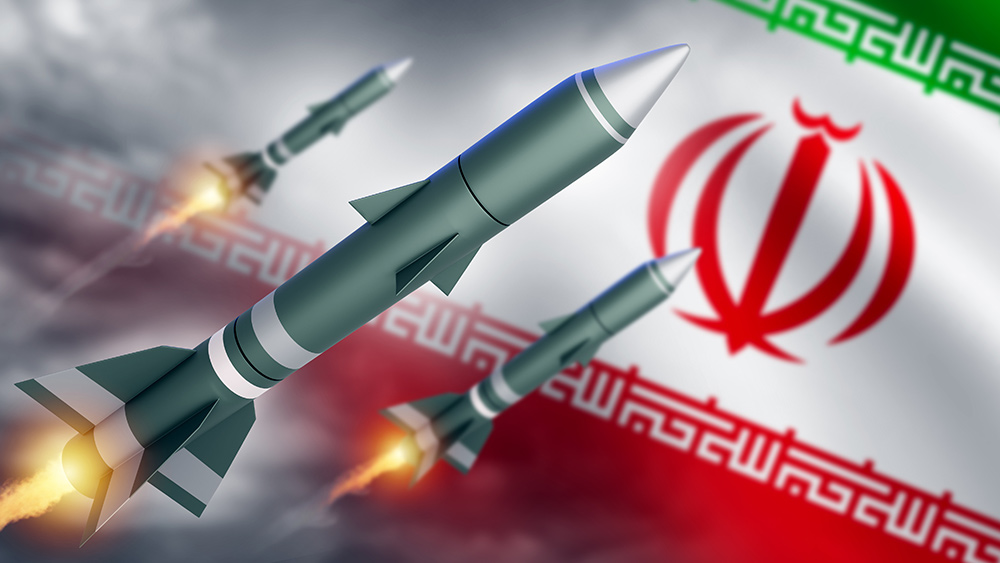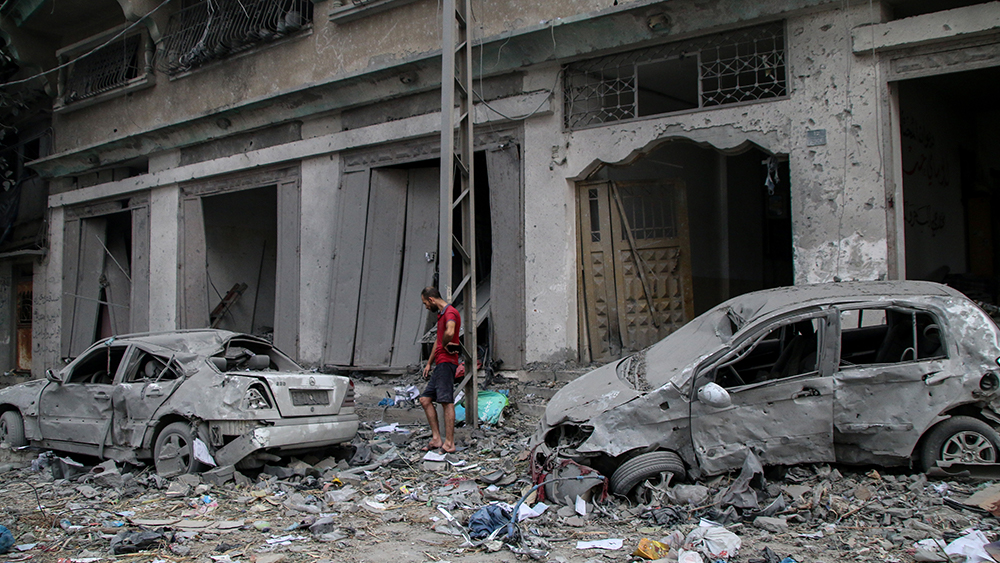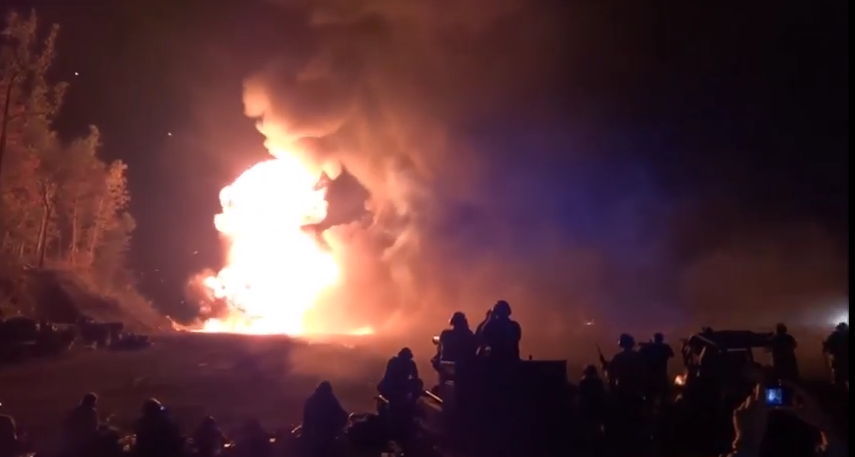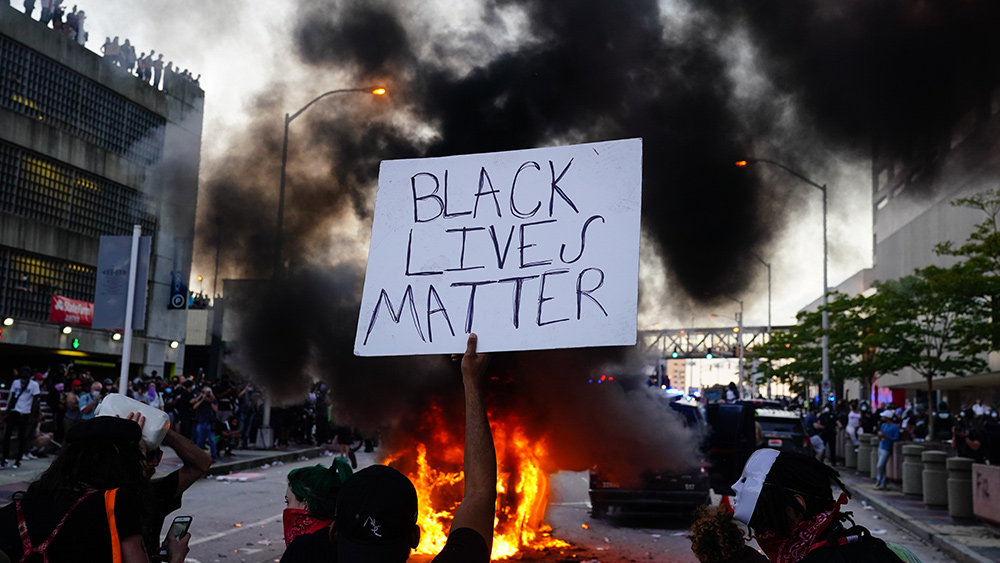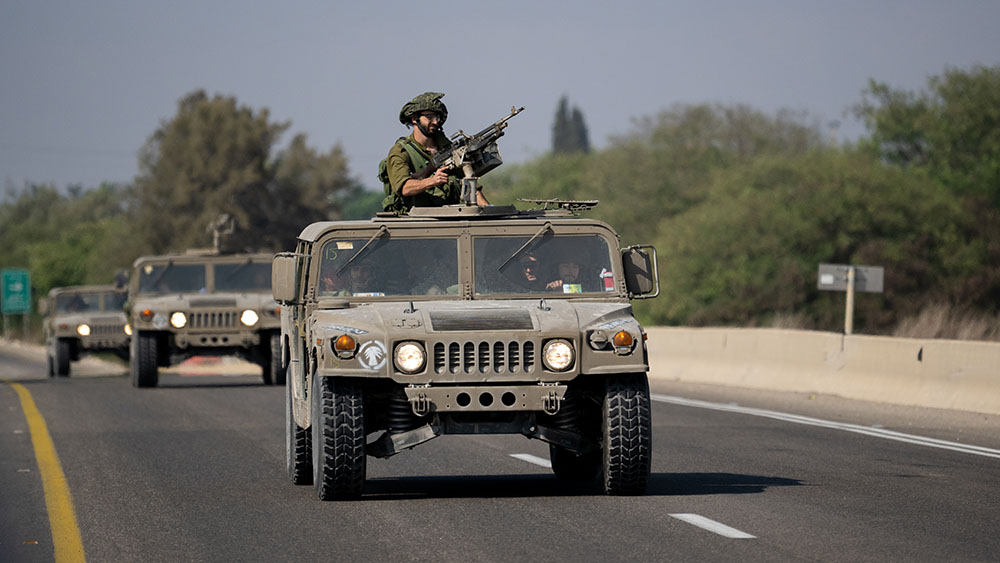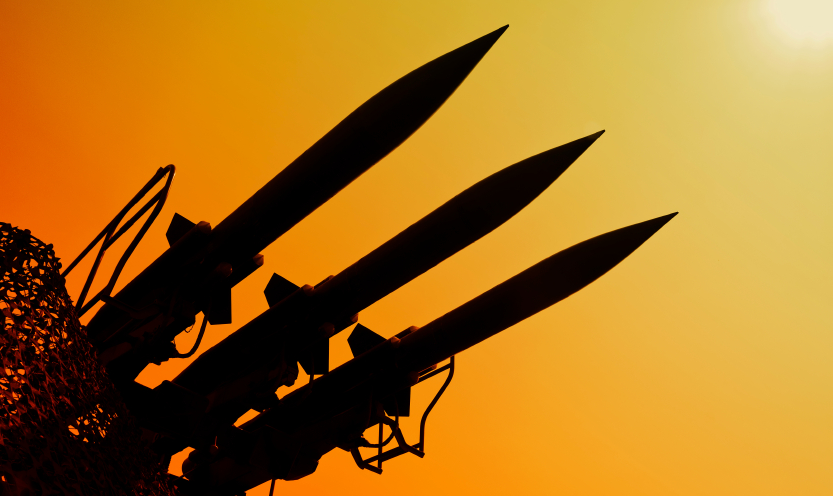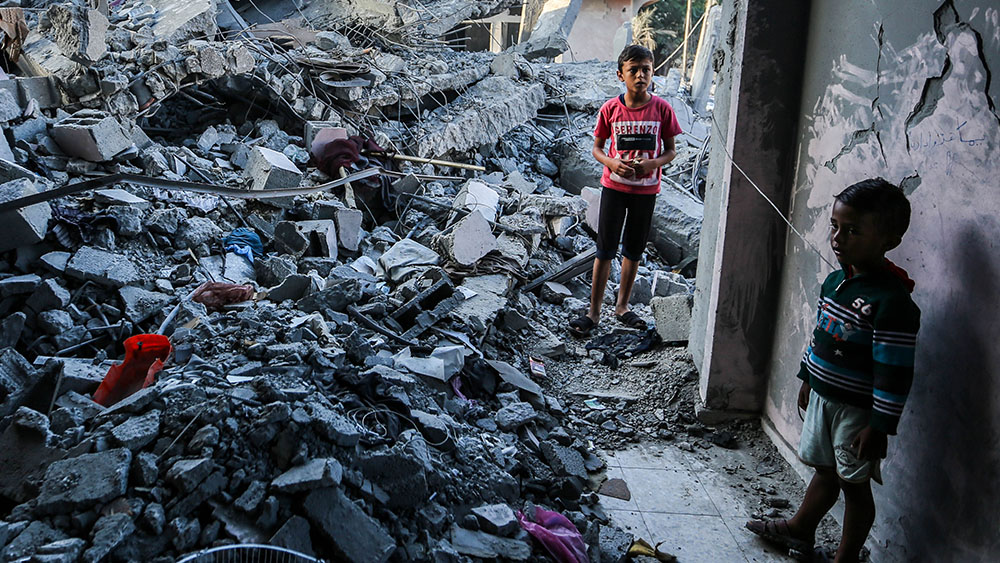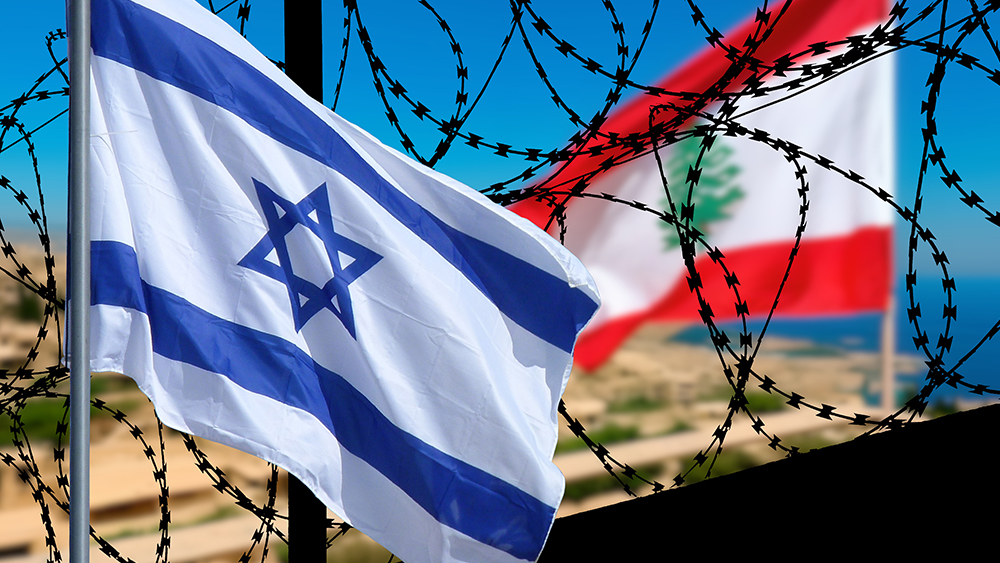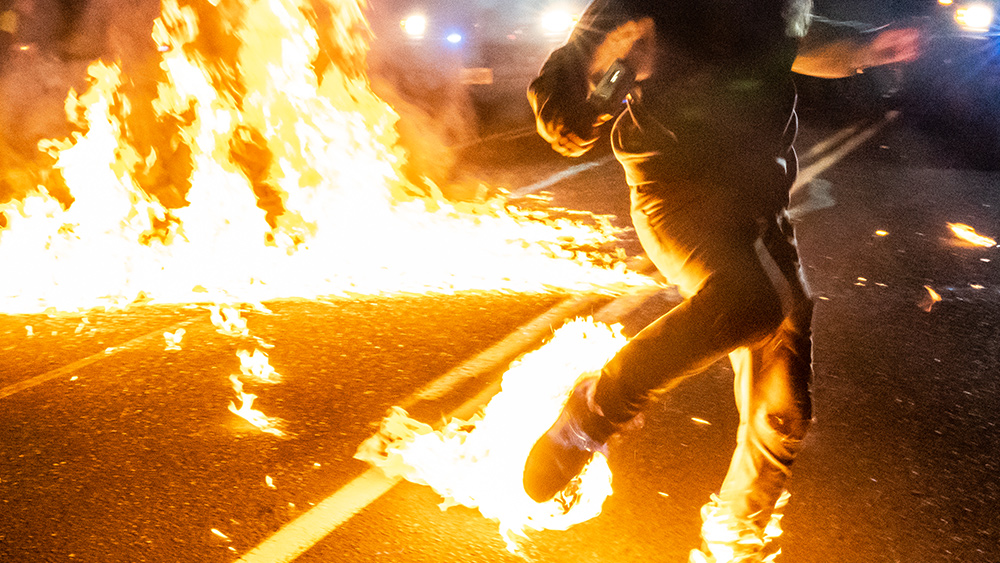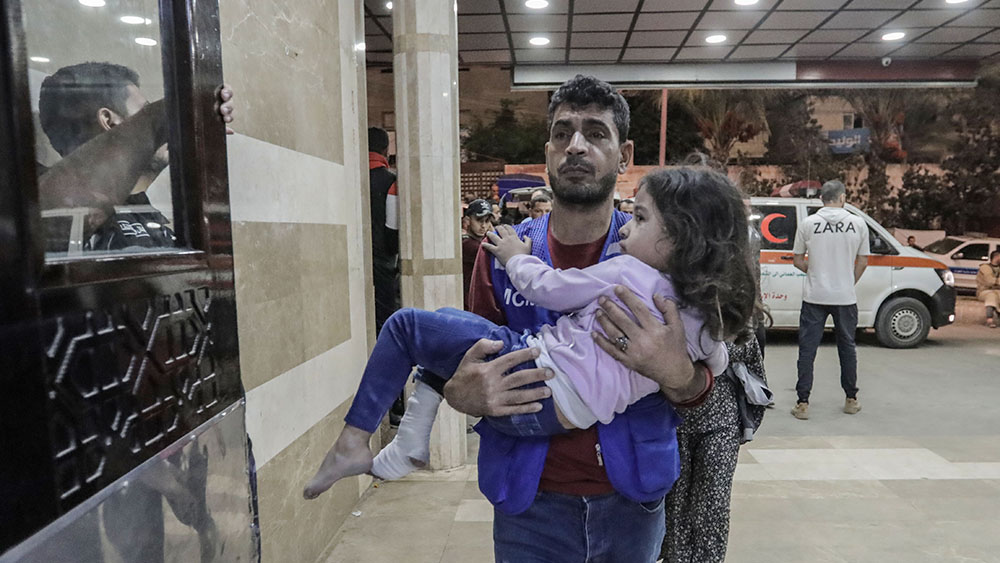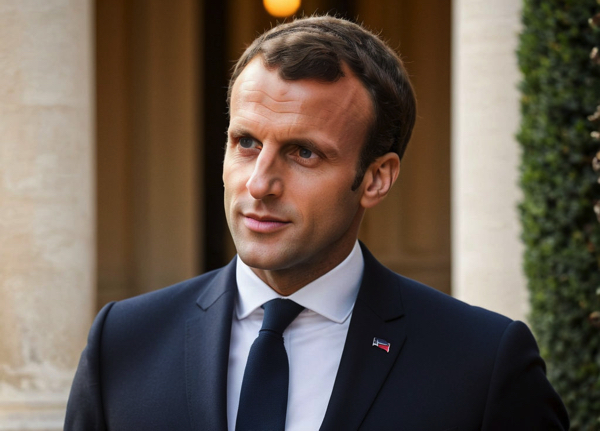I resigned from Canada’s largest broadcasting corporation over its complicity in Israel’s genocide
10/18/2024 / By News Editors

Words can empower, arm, and evoke sentiments that stimulate new ideas, worldviews, and policies. Being the only Muslim in the newsroom, I feared the language the Canadian Broadcasting Corporation (CBC) was using to talk about Palestinians and resistance could ignite similar emotions that justified the U.S. invasion of Iraq and mass killings of innocent civilians in 2001.
(Article by Arfa Rana republished from Mondoweiss.net)
Days after October 7, 2023, I sat across from a CBC executive who appeared uneasy yet curious about my concerns over CBC’s coverage of Hamas’ attack on Israel. I was appalled by CBC’s lack of historical context between Israel and Palestine and the language used to defend Israel’s massacre of Palestinians.
The executive appeared empathetic but then quoted CBC’s stance on impartiality and the importance of “balanced coverage”. But, I argued, when crimes against humanity are being committed, there is no such thing as both sides to a story. There is only the truth.
After sharing my concerns with the executive, I was strategically dismissed from daily pitch meetings for a few weeks. But as the war amplified and I returned to my seat at the table, I continuously brought up to my peers and editors that labeling genocide as the “Israel-Hamas war” falsely portrays that both Palestinians and Israelis are on even-playing fields. This narrative ignores that for 76 years, Palestinians have been forcibly ousted from their homes, confined to the barbed wires of the Gaza Strip, and have been under constant surveillance of Israeli settlers.
Instead of being receptive, senior journalists in the newsroom parroted CBC’s Language Guide, which highlights the language CBC uses.
The CBC Language Guide on the Middle East is a catastrophic oxymoron. The guide prohibits using the term “colonization” but encourages journalists to provide context by saying Palestinians “fled or were forced from their homes”. The targeted killings of Palestinians are referred to as “collective punishment” and the term “occupied” is “OK to use…if an adjective is needed”. “Apartheid”, a policy in which people are separated based on racial or ethnic criteria, is discouraged when describing the barrier between West Bank and Israel that separates Israelis from Palestinians. Finally, a senior producer told me that acknowledging Palestine is like referring to Persia – an outdated term that refers to a historical region – despite Palestine being recognized by the United Nations.
In January, The Breach reported that CBC acknowledged to a reader’s complaint that they reserve terms such as “massacre”, “brutal” and “slaughter” in reference to Hamas’ October 7 attacks but attribute neutral language around Israeli attacks because they are “carried out remotely”. The complainant, retired professor Jeff Winch, argued CBC’s biased language skews “the reader’s empathy towards Israel and away from Palestinians—a further dehumanizing of an already downtrodden people.”
I wondered then, was impartiality an excuse for complicity?
In formerly colonized countries, journalism is used as a decolonization tool to grant a voice to those silenced by authoritarian governments and institutions. In contrast, the CBC’s goal to report “impartially” by calling the invasion of Lebanon and growing death toll in Gaza the “Israel-Hamas war” reflects their own subjectivity and moral failure to side with justice.
Israel is undoubtedly a settler colonial force and Charles Mills explains in The Racial Contract that settler colonialism has various tools it uses to achieve the upper hand over colonized peoples – one being institutions that act as their right arm to justify their actions.
CBC’s journalistic practices are an offense to dozens of journalists like Shireen Abu Akleh, a Palestinian journalist targeted and killed by the IDF, and Arshad Sharif, a Pakistani journalist killed after vocalizing his stance against the Pakistani army. Both put their lives at the forefront of their work to stand for the greater good of humanity.
Instead, Canadian journalists who voice their moral duty to stand on the right side of history are silenced under the banner of objectivity—a concept that, although great in theory, is still man-made and injected with the biases of the master who leads the institution.
By the time I resigned, I had become a shell of myself. The constant tug-of-war between my conscience and CBC’s Language guide was an uphill battle that I could no longer fight. The language used at CBC to describe the atrocities in Gaza was hammered into my subconscious and fogged my critical thinking. I began to believe that, perhaps, Israel may not be in the wrong. CBC is the truth-teller and it is I, the trouble-maker, who deserved the dismissive demeanor of my peers to whom I consistently pitched stories with Palestinian voices.
It took months to clear my mind and when it did, I understood that impartiality was a concept that was used to avoid confrontation from state actors, politicians, and Israeli lobbyists. By doing so, journalists working for mainstream Canadian media had cowered into the role of stenographers, leaving Palestinians defenseless in the face of genocide. But lying low to avoid backlash only empowers the wrongdoers to continue inflicting injustices on the oppressed, the language not only minimizes the brutality of the oppressor but justifies it.
Now is the time for journalists to use their power to change the opinions of the masses through the stories they write. After all, truth-telling is not only a moral human obligation, but for journalists, it is also a revolutionary act.
Read more at: Mondoweiss.net
Submit a correction >>
Tagged Under:
awakening, biased, Canadian Broadcasting Corporation, conspiracy, current events, deception, democide, fake news, genocide, Holy War, insanity, Israel-Hamas war, Journalism, mainstream media, news cartels, outrage, Palestine, politics, pro-Israel, propaganda, Resist, revolt, suppressed, War crimes, Xpost
This article may contain statements that reflect the opinion of the author
RECENT NEWS & ARTICLES
COPYRIGHT © 2017 REVOLT NEWS


